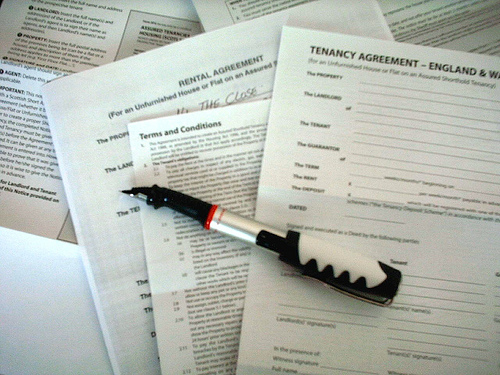 How do I get out of a contract? This is never an easy question. Many times we are asked: can I get out of (rescind) my contract? So today we would like to briefly discuss contract rescission is Georgia.
How do I get out of a contract? This is never an easy question. Many times we are asked: can I get out of (rescind) my contract? So today we would like to briefly discuss contract rescission is Georgia.
In Georgia, contract rescission has been held to be the complete abrogation (abolishment or cancellation) of a contract. The circumstances which allow parties to rescind a contract, generally, involve three (3) situations:
1. Both parties agree to rescind the contract, known as “mutual assent”;
2. The contract is rescinded because of fraud; or
3. A party (you) may be allowed to rescind a contract because the opposite party failed to perform in accordance with the contract terms.
If you are able to rescind your contract, it will be rescinded “at law” or “in equity.” Rescission “at law” applies to situations involving fraud, while rescission “in equity” involves the power of a court of equity to “undo” a contract.
We are often confronted with situations where a person wants to undo a contract because of fraud. If your claim is that someone fraudulently induced you to enter a contract, you have the option to either affirm the contract or sue in breach of contract. What is important for you to know is that in these types of cases Georgia courts require the defrauded party, you, to act with “promptness.” That means:
1. When you discover that you have been defrauded, you must act promptly to “restore or offer to restore to the other party (the party that you allege defrauded you] whatever he has received by virtue of the contract if it is of any value”; and
2. Upon discovery of the facts–that you have been a victim of fraud–at once announce your purpose to rescind the contract, and adhere to it.
Again, once you discover that you have been defrauded and take the position that you do not want to adhere to the contract, you should not waiver from that position. If you do waiver, and your action is interpreted as “affirming” the contract, despite the fact that you are claiming fraud, you will significantly impair your ability to rescind the contract at a later point. Once you lose or waive your right to rescind a contract, you most likely will not be able to revive that right.
In addition, if you do not act promptly upon discovering the alleged fraudulent conduct, but instead proceed with fulfilling certain obligations of the contract, or act in a manner inconsistent with your previous repudiation of the contract, a Georgia court may find that complaining about fraud during litigation is: too late.
There are more issues involved in contract rescission, especially those involving claims of fraud. And the issues are complex. You need a good lawyer who understands the law and its nuances and how to apply that law to the facts of your case, in order to maximize your position both at trial and the negotiating table.
We recommend that you contact a good lawyer, immediately, once you realize or think you have been defrauded with respect to a contract.
Continue reading →
 Do I have a contract? Is my contract enforceable? These are all questions that our clients sometimes ask. Today’s article will discuss the definition of what a contract is in Georgia.
Do I have a contract? Is my contract enforceable? These are all questions that our clients sometimes ask. Today’s article will discuss the definition of what a contract is in Georgia. Georgia Injury Lawyer Blog
Georgia Injury Lawyer Blog


 “Can I enforce this contract?” “Can I get out of this contract?” “Is this contract enforceable?” These are all questions we often hear from clients. Under Georgia law, a contract does not exist nor is enforceable unless the parties agree on all “material” (that means essential, significant and substantial) terms.
“Can I enforce this contract?” “Can I get out of this contract?” “Is this contract enforceable?” These are all questions we often hear from clients. Under Georgia law, a contract does not exist nor is enforceable unless the parties agree on all “material” (that means essential, significant and substantial) terms.  “Can I sue for a broken contract?” is a question many people asking when they need a good Georgia contract lawyer. Many times during contract disputes, clients often feel that “even though a particular obligation is not written within their contract with another person or entity, it’s common sense that that person or entity breached the contract by not performing a certain service, or acting a certain way.” Depending on what service, or what conduct, the client is referring to, he or she may have a point.
“Can I sue for a broken contract?” is a question many people asking when they need a good Georgia contract lawyer. Many times during contract disputes, clients often feel that “even though a particular obligation is not written within their contract with another person or entity, it’s common sense that that person or entity breached the contract by not performing a certain service, or acting a certain way.” Depending on what service, or what conduct, the client is referring to, he or she may have a point.